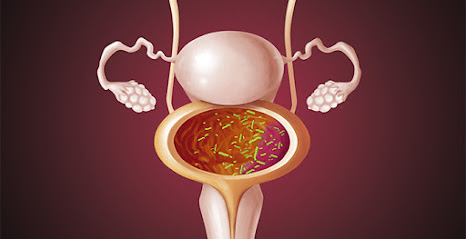Cystitis and what pain killers may help
Types of cystitis
Cystitis is inflammation of the walls of the
bladder. Most often it is accompanied by inflammation of the
urethra. Bladder infections come in different forms.
Naturally:
·
Non-infectious caused by irritation of the
bladder lining from high doses of drugs, spicy food, alcohol, or hypothermia.
·
Infectious, caused by various infectious agents.
Depending on the course of the disease:
·
Acute, which occurs for the first time and is
accompanied by acute pain.
·
Chronic that occurred several times in the same
patient. The symptoms are expressed more weakly. In the neglected
variant, however, concomitant diseases of the kidneys and ureters can occur.
What pain relievers for cystitis?
No easy treatment gets rid of the signs
and symptoms and signs and symptoms of interstitial cystitis,
and no one treatment works for anyone. You
could want to strive numerous treatments or combos of remedies before you locate an approach that
relieves your signs. Your doctor or pharmacist can advise you on how to
treat yourself and recommend taking pain relievers to relieve symptoms of a
cystitis. You may need to try different treatments or combinations of
treatments before finding an approach that will relieve your symptoms.
Oral medications that may improve the signs and symptoms of
cystitis include:
·
Non-steroidal anti-inflammatory drugs (NSAIDs)
to relieve pain, such as ibuprofen or naproxen.
·
Tricyclic antidepressants, such as amitriptyline
or imipramine, to relax the bladder and block pain.
·
Antihistamines such as B. Loratadine, which
may reduce the urge to urinate, reduce the frequency of urination and other
symptoms.
Your doctor may suggest that you take over-the-counter pain
relievers to control mild bladder pain, provided there are no
contraindications:
·
Paracetamol
·
Aspirin
·
Ibuprofen
·
Naproxen
Talk to your doctor if you think you need stronger pain
relievers for a cystitis. If you're in severe pain, your doctor may need
to prescribe opioid pain relievers or pain relievers, such as acetaminophen
with codeine. Drugs from the NSAID group inhibit the synthesis of enzymes that
cause tissue inflammation. NSAIDs pain relievers for
cystitis, with a bladder infection, drugs of this group work in several
directions: NSAIDs have an antipyretic, analgesic and anti-inflammatory
effect. It should be remembered that NSAIDs do not eliminate the harmful
micro flora - the infection itself, which in most cases is one of the
Gram-negative bacteria.
Diclofenac pain reliever for cystitis the use of non-steroidal
anti-inflammatory drugs (NSAIDs) could potentially reduce the use of
antibiotics. In a randomized double-blind study.
Symptoms of cystitis?
The common symptoms of cystitis are, Symptoms are most
pronounced in middle-aged people, and insignificant in the elderly and
children, which makes it difficult to diagnose the disease. A distinction
is made between the following symptoms:
·
Pain or stubborn sensation when you urinate
·
Frequent urination is required, but very little
urination is done each time
·
dark, strong-smelling urine
·
blood in your urine
·
pain in your belly or lower back
·
feeling feverish
·
Urinary incontinence
Treating cystitis at
home
If you have slight signs and symptoms which
have just come on, then there are a few methods you
may deal with your cystitis
at home and help resolve the infection:
·
drinking lots of water
·
Over-the-counter painkillers such as ibuprofen
and paracetamol are taken
·
refraining from sex
·
Your discomfort with a hot water bottle is
admirable
·
avoiding alcohol, fruit juice and caffeine
In case your cystitis persists for a
number days then you definitely have to be searching
for scientific assist - if left untreated,
the contamination ought to spread to your kidneys,
making it a medical emergency. In case
you develop a high fever, severe pain or in
case your symptoms get worse you need to see
a physician right away.
Conclusion
All drugs, including pain relievers without prescription,
have side effects. Ibuprofen and other NSAIDs have certain risks
associated with their use. Ibuprofen can damage kidney function, either
through direct injury or by suppressing some of the inflammatory changes in the
body that are a reasonable and helpful response to an infection. Always
consult a doctor before using any medication or dietary supplement for more
than a few days. Click on the link for a more in-depth analysis here: https://schmerzmittelshop.com/2021/02/02/schmerzmittel-bei-blasenentzuendung/

Comments
Post a Comment